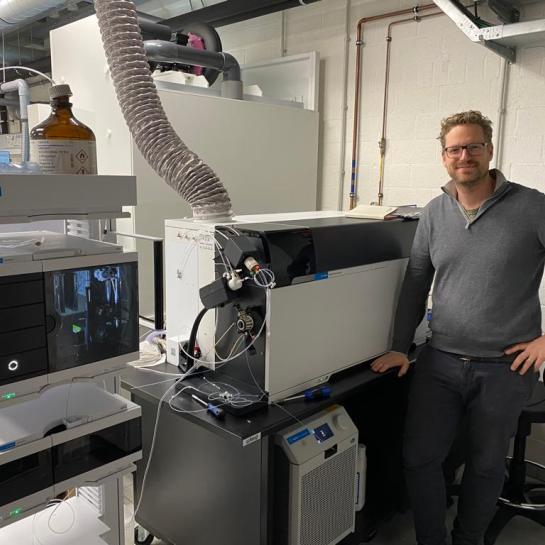
Steven and his team enjoy a new toy for studying (micro)meteorites and the flux of extra-terrestrial particules to Earth.
Thanks to funding from the Research Foundation Flanders, Hercules project : "Shooting stars and blasting dinosaurs: boosting ICP-MS capabilities across various research domains" with Professor Steven Goderis as Pi, a new triple-quadrupole inductively coupled plasma mass spectrometers coupled with a high-performance liquid chromatography (HPLC) and a excimer based nanosecond laser ablation system has been installed in the new ICP-MS lab of AMGC at the VUB.
The team is currently learning the ropes of the new instrument plaftorm that nicely complements with our high resolution ICP-MS and multi-collector ICP-MS. With LA-ICP-MS, AMGC now possesses the capability to carry out direct quantitative elemental analyses at µm scale, which is especially relevant for the study of mineral phases in extra-terrestrial samples. The HPLC makes possible the speciation analyses of potentially toxic trace elements with broad applications in environmental sciences.
From left to right: The instrument being installed in its dedicated spot in the AMGC clean-lab; a triple quad system does not take that much space, and this time it came with the lift
